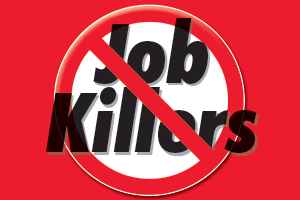As part of a comprehensive, bipartisan solution implementing the state’s ambitious climate change goals, the legislation that extended the cap-and-trade program also included several useful tax reductions.
These tax cuts will help mitigate cost increases on rural Californians and partially offset some costs for California manufacturers and energy producers.
Sales Tax Exemption
Manufacturers gained a partial, temporary exemption from state sales taxes, beginning in 2014, through 2022. The exemption applies to purchases of equipment used in manufacturing and research and development, but did not apply to businesses in the financial services, resource extraction or farming sectors. The exemption is limited to $200 million per taxpayer per year.
The cap-and-trade measure extends this sales tax exemption for an additional eight years, through 2030, and expands its coverage to include equipment used in for renewable energy production, storage and distribution. In addition, if any of these manufacturing/R&D/renewable energy activities occurs in an agricultural setting, the equipment would now qualify for an exemption.
The legislation also directs that proceeds from the cap and trade auctions reimburse the General Fund for the $200 million to $250 million value of the sales tax exemption, beginning now.
State Fire Fee Repeal
Since 2011, the state has charged a fee on parcels with habitable structures on lands within the “State Responsibility Area,” which are lands that are protected by the California Department of Forestry and Fire Protection (that is, not served by municipal fire departments or federal agencies). The fee was $150 per parcel, annually adjusted for inflation, and is used to help pay for fire prevention and protection services by CDFFP.
The cap-and-trade measure suspends assessment of the fee immediately and repeals it in 2031.
The measure also declares the intent of the Legislature that cap-and-trade auction revenues replace the approximately $85 million foregone revenues from suspending the fire fee.
Staff Contact: Loren Kaye



